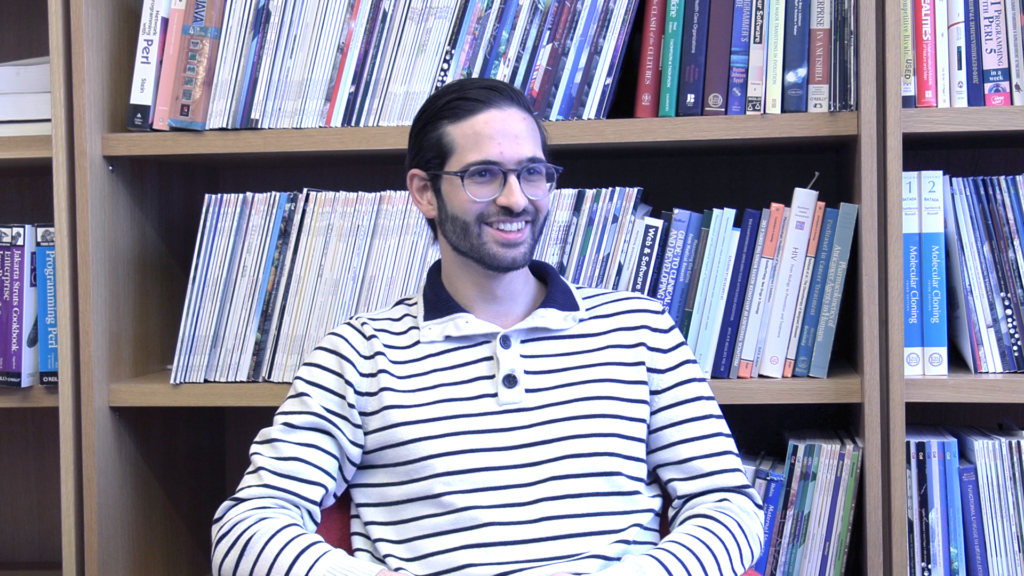
Single-cell RNA sequencing (scRNA-seq) is a powerful tool for understanding the heterogeneity of complex biological systems such as tumour microenvironments (TMEs). However, accurate cell-type annotation remains a major challenge in scRNA-seq analysis. Manual annotation can be subjective, and the use of canonical gene expression is limited by incomplete detection and low transcriptomic variation among related immune cells. Although various automatic cell classifiers have been developed, they have limited capabilities in deciphering complex TMEs across diverse human cancers. Moreover, relying solely on copy number variation inference for the identification of malignant cells may lead to false negatives or undefined cells in cancers with minimal genomic structural variation or nearly diploid genomes.
Recently, a study by researchers at the Ontario Institute for Cancer Research (OICR) titled “Pan-cancer classification of single cells in the tumour microenvironment” was published in Nature Communications. In this study, the authors present scATOMIC, a comprehensive, pan-cancer, TME cell-type classifier that uses hierarchically organised models and elimination processes to reduce the transcriptomic complexity of the TME multi-cellular system and improve cell classification. Fully automated, scATOMIC can be easily updated to capture additional subsets of normal cells and clinically relevant molecular subtypes of cancer. This novel scheme provides a critical tool for a better understanding of cancer ontogenies and the molecular interaction of diverse tumour components with their microenvironments, potentially leading to the development of more effective cancer therapies.
Rising Stars invited Ido Nofech-Mozes, the first author of the study and a PhD student at OICR and the University of Toronto (Department of Molecular Genetics), to tell us about the work behind the paper.
What is your academic background and what are your future career goals?
I completed my Bachelor of Medical Sciences at the University of Western Ontario, focusing on Immunology and Pathology. During my fourth year, I conducted a thesis project on cancer immunology, which sparked my interest in the complex interplay between cancer and immune cells within TMEs. I aim to continue academic research with a focus on how to implement large-scale ‘omic’ data in a way that benefits cancer patients.
What were the key challenges you faced in developing scATOMIC and how did you address them?
One major challenge in pan-cancer classification is that each patient’s tumour has a different landscape of mutations and genomic instability, leading to patient-specific global transcriptomes. As a result, cancer cells from one patient form a distinct cluster compared to those from another patient. Leading classification approaches rely on mapping cells from a query dataset onto a reference dataset, but this approach cannot be applied to cancer cells due to the inconsistencies between malignant cells from different patients. Therefore, scATOMIC uses machine learning classifiers that do not rely on mapping a query transcriptome to a reference to predict cancer cell types across patients at a pan-cancer scale. Another significant challenge in cell type classification was that related immune cell subtypes, such as cytotoxic killer T cells and natural killer cells, share remarkably similar transcriptomes. The genes that distinguish these related cells from other unrelated cell types, such as cancer cells, overlap in their expression. To address this challenge, scATOMIC developed a stepwise approach for classification. First, it predicts the broad cell type using overlapping genes, then iteratively subclassifies the cells with genes that distinguish the related immune cells but were detrimental to classifying the broad cell types in the previous classification layer.
In your opinion, what are the most promising applications of single-cell RNA sequencing in the tumour microenvironment?
scRNA-seq is a powerful tool for uncovering the different states of cell types with the added capability of predicting how different cell types interact. In malignant cells, scRNA-seq provides the sensitivity to identify rare clones in a tumour, which could be responsible for critical future outcomes, including the clones that seed metastatic growths and those with therapeutic resistance that underlie relapse. Studying the transcriptomes of these clones could uncover biomarkers that can be assayed in a clinical setting using more affordable targeted assays. Additionally, understanding interactions that occur across all cancer types will likely lead to a new stratification of patients based on their TMEs rather than their cancer types. In the future, single-cell technologies will be able to concurrently assay multiple modalities, including genomics, epigenomics, transcriptomics, and proteomics, within the same cells. Multimodal studies will shed light on potential druggable underlying mechanisms that lead to the different hallmarks of cancer.
How has your research on scATOMIC helped you develop your skills?
During my research, I have developed critical skills in self-learning and scientific communication. Although I had no experience with coding when I started my graduate studies, I have since acquired the skills to write software, manage repositories, and use powerful computing resources. Through this work, I have discovered effective strategies for learning new fields and have learned not to be afraid to seek help when needed. Presenting scATOMIC at various conferences has taught me how to effectively communicate my work to diverse audiences. As a contributor to various student groups, I prioritise having a well-organised schedule and avoiding overworking, which can lead to burnout. By balancing my academic work with other responsibilities, I have learned how to manage my time effectively and remain productive while avoiding excessive stress.
Find about more about Ido Nofech-Mozes by watching his The Next Generation video.
Connect with Ido:
Email: Ido.Nofech-Mozes@oicr.on.ca
Twitter: @inofechm
Story contributed by:
Michael He, Ph.D.
Postdoctoral Researcher, Princess Margaret Cancer Centre, University Health Network
Delegate, Ontario Rising Stars in Cancer Research Network, Ontario Institute for Cancer Research
Posted on:
